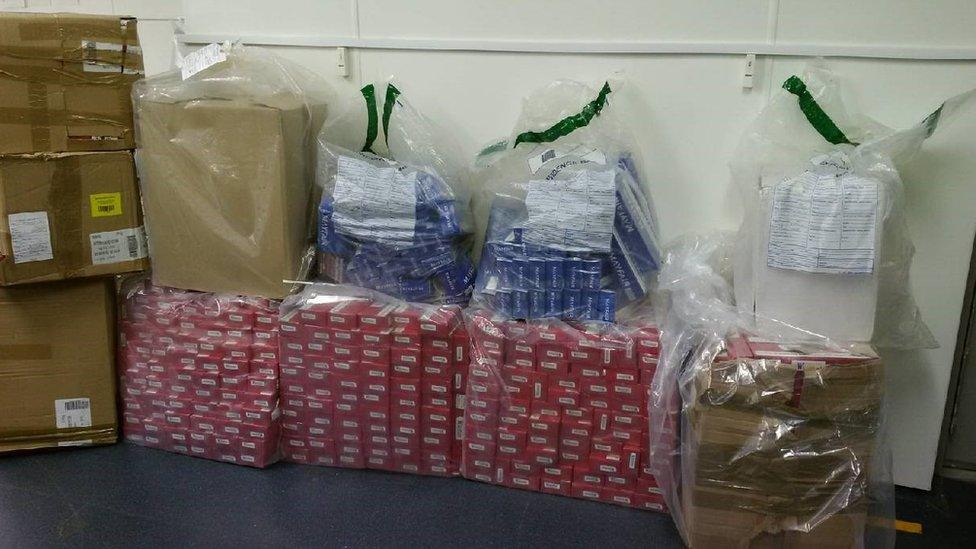Illegal tobacco 'commodity of choice for organised crime'
- Published
One million cigarettes sold every day in Wales 'illegal'
Organised criminals selling illicit cigarettes target Wales due to a lack of investment in enforcement, a senior investigator has said.
Powys Council Trading Standards' Clive Jones said tobacco control strategies will be undermined unless central enforcement is introduced.
New figures show some 150,000 illegal products were seized in Wales since 2013.
The Welsh Government said it was considering proposed strategies.
Up to 15% of all tobacco sold in Wales - equating to about a million cigarettes a day - is illegal, according to a survey of 2,500 people carried out by Ash Wales in 2014.
At the time, Wales had a higher proportion of illegal product than any English region.
New figures obtained by BBC Wales show more than 150,000 illicit products - including cigarettes and rolling tobacco - were seized by council-run Trading Standards departments across Wales.
"The real threat to Wales is that we don't become a dumping ground for criminals to make money from the fact that the enforcement ethos and capability is not there," said Mr Jones.
"I think criminals see it as an open door to make money in Wales from this type of criminality. And that is a challenge to Welsh Government - to say, as part of their strategy, where is the emphasis on enforcement?
"It's great having tobacco control strategies but the enforcement arm of that needs to be in place, and if it's not it completely undermines the wider strategy."
Experts say counterfeit cigarettes, in particular, can contain poor quality tobacco, plastic and human or rat faeces; they can also pose a greater fire risks due to the way they are produced.
Suzanne Cass, chief executive of Ash Wales, said the Welsh Government should back the antismoking charity's plan to tackle illicit trade via a central communication and enforcement programme.
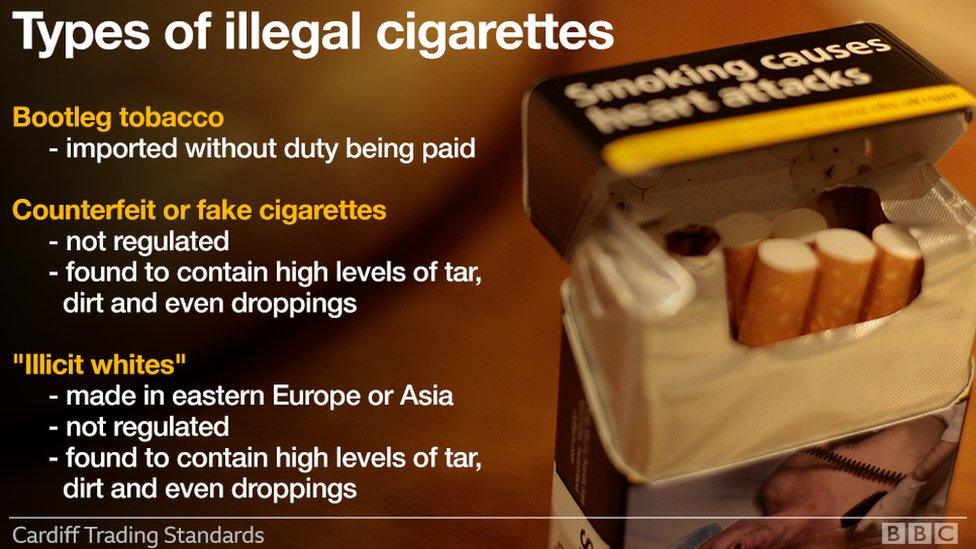
"We know that illegal tobacco is a real problem here in Wales," she said.
"We know that children are accessing cheap cigarettes through the illicit market. We also know that people are continuing to smoke because the illegal tobacco is available and ready for them to buy."
Trading Standards and public health fall under the remit of the Welsh Government or local authorities and, while tackling crime is funded by the Home Office, the proposed scheme would be need to be funded by Cardiff Bay.
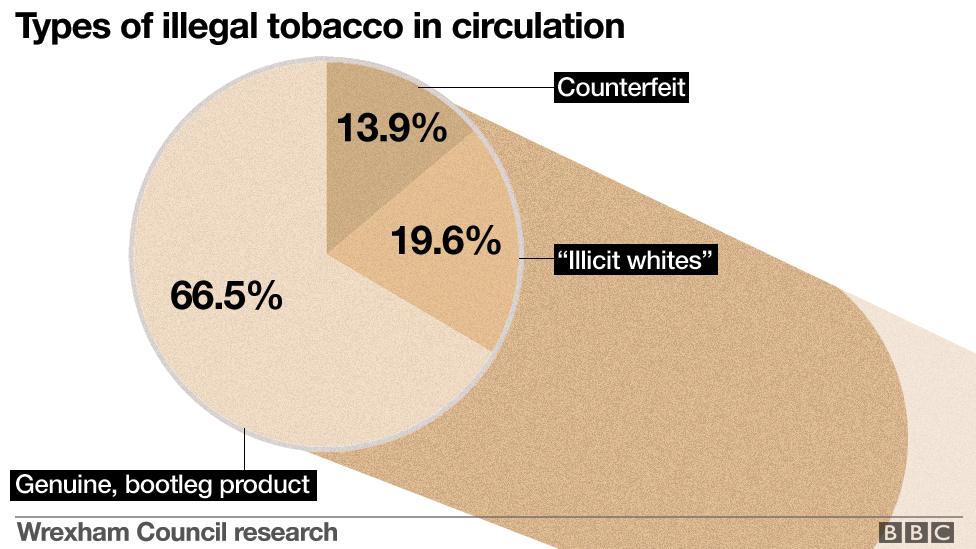
Aside from Trading Standards, the big tobacco firms also carry out their own investigations into, and prosecutions of, black market sales.
Among them is Japan Tobacco International (JTI), which has run undercover buys throughout Wales.
Steve Wilkins, a former Dyfed-Powys Police detective chief superintendent who is now anti-Illegal trade operations director at JTI, said there were "vast amounts" to be made from illegal tobacco.
"It is the commodity of choice for organised crime because the profits are high, the chances of getting caught are low and the actual sanctions are very, very low," he said.
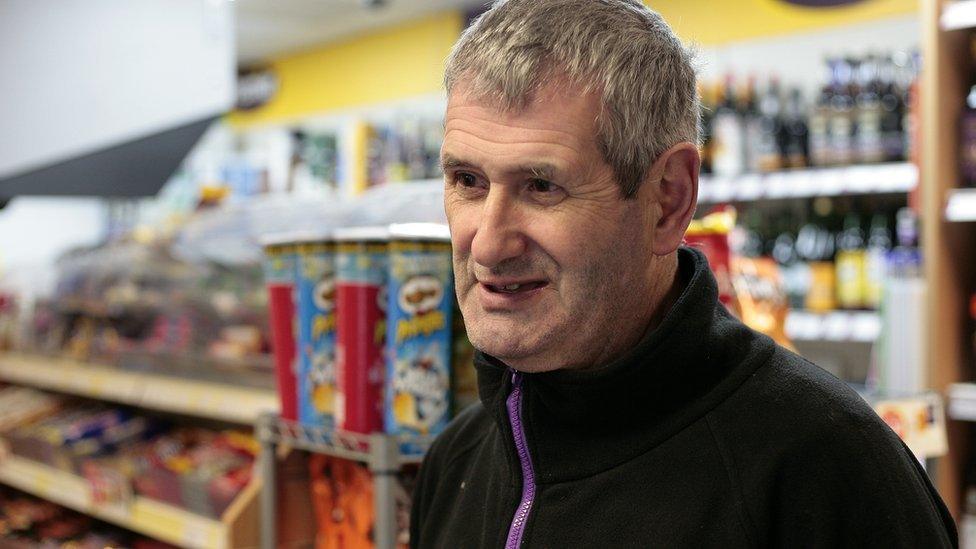
John Parkinson has worked in retail for more than 40 years
John Parkinson, who runs Broadway Newsagents in Penrhyn Bay, Conwy, said a "dramatic increase" in illegal sales had harmed local businesses, including a Colwyn Bay kiosk which closed after an illicit seller took some of their trade.
"You will find most young people have bought from an illicit source," he added. "People selling illicit tobacco or cigarettes aren't worried whether you're over 18 - they are only interested in the profit."
The Welsh Government said it was considering Ash Wales' recommendations.
A spokesman said: "Illegal tobacco can undermine our efforts to protect young people from buying tobacco, as it is offered at much lower prices, without age restrictions.
"It also removes the motivation of saving money for those trying to quit. Reducing the number of smokers in Wales requires us to stop young people from starting to smoke, and to support smokers to quit."
- Published25 January 2017
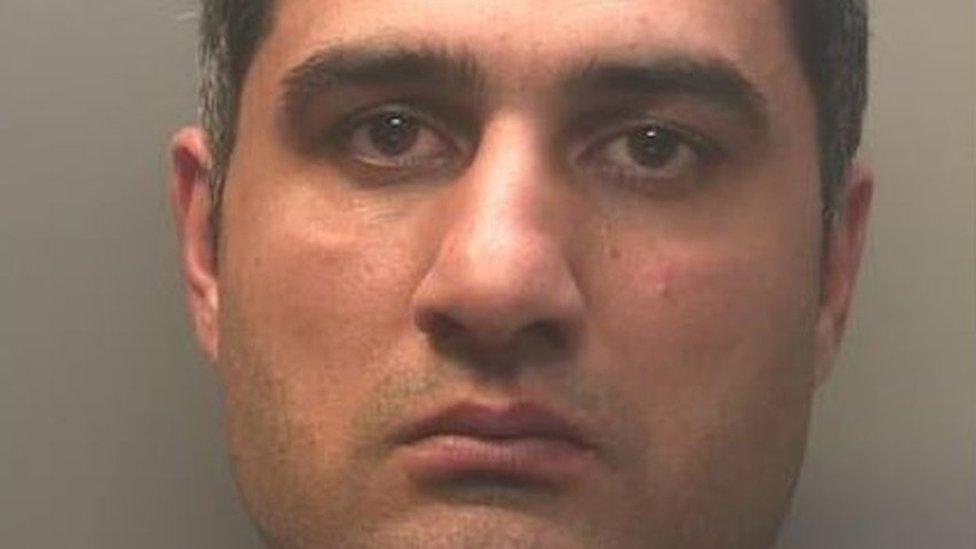
- Published28 September 2018
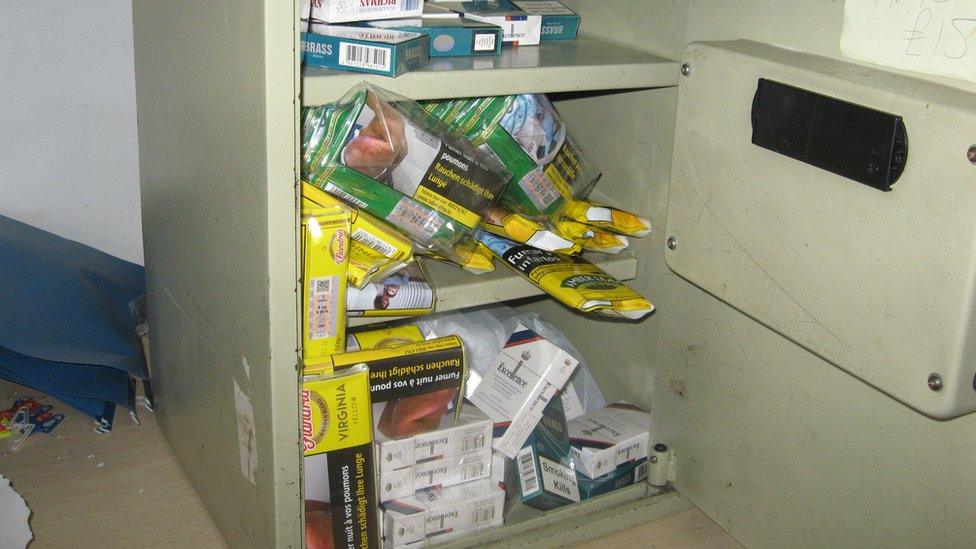
- Published4 July 2018
